
Vergina Sun Crest Argead dynasty
With regard to the period of the founding of the Royal House of Macedonia nothing is perfectly clear. The beginning is placed between myth and history, the founder of allegedly lived about the same time with its founder House of Achaemenides. This coincidence becomes even more interesting, After the 6the e.g.. century Darius ' passed in Europe and made it the Amynta 1st vassal of, inaugurating a fatal rivalry for both Houses. Two centuries later the Alexander Iii passed in Asia and campaigned against the Achaimenidikis Empire. The fourth year of hostilities murdered Darius Iii, the eleventh time died, Alexander Iii and with them died and the two Royal Houses.
According to Herodotus, three sons of Timenoy, the Gayanis, the Aeropos and the Perdiccas I, driven out of the country from Argos and took refuge first in Illyria and after in the city Lebaia of upper Macedonia, where bioporizontan making sure local animals (I guess Paiona) ruler. When it appeared something was interpreted as a divine warning, Regulus he ordered them to leave the country of. Those requested accrued wages and he "blinded by the gods"I showed them the rays of the Sun, entering through the chimney of the House, telling them "To the salary, you deserve». The two biggest were surprised, but the younger they had sword, the pulled out and saying "King we accept everything,what you give us», prospoieito that was gathered from the soil the sunbeams and put on the robe of.
After they left the three brothers, King stalked them considering that the youngster had raised claims of Perdiccas the throne and throughout its territory under the Sun. Those fled over "gardens of Midas"and starting from the Mount Vermio captured first the neighboring places and after all Macedonia. Delivered and the myth that was followed by a flock of kids Perdiccas and point, who stopped kids (goats), He decided to build his capital, which reasonably named Aigai.
Argead path – from Argos to Macedonia
The royal dynasty of Macedonia was named Timenides ή Argeades, because the three brothers were sons of Timenoy from Argos. The coat of arms of the Royal House was not known, until the discovery of the tomb of Philip Ii. Then it was found that it was the so-called "Sun of Vergina», We refer directly to Allen of Herodotus and the collection of the Sun's rays by Perdikka, the alleged founder of the dynasty.
In the genealogy of the Macedonian Kings Alexander I is focal person. For most predecessors essentially nothing is known except maybe the name. Alexander's First involvement in the Persian wars turned out Macedonia from historical obscurity and the combined action of the southern Greek States and Macedonia in the geographical area of what is now Greek Macedonia, that until then belonged to different peoples Paionikoys, throw enough light on coming Kings. For Alexander's predecessors First rely on Herodotus and the complete genealogy of Macedonian Kings arises as follows.:
Aegae – Perdiccas I_ tetradrachmo_ 500 e.g.
Perdiccas I: reportedly reigned early 7th century
Mount Erciyes 1st: He succeeded his father and reigned at the end of 7th century
Philip I: He succeeded his father and reigned in the early 6th century.
Statiras_Aeropos_398-395-4 b.c.
Aeropos: minor yet succeeded his father the 588 and reigned until 568 e.g..
Alketas: He succeeded his father and reigned between 568 and 540 e.g..
Amyntas I Of Constantinople: son of Alketa and father of Alexander I. Rose to the throne 540 e.g.. and gave land and water to Ambassadors of Darius. On days of Macedonia became part of the European satrapeias of Achaemenides.
Silver oktadrachmo_basileia Alexander I_460 b.c.
Alexander I: son of Amynta 1st, ascended the throne in 498 BC Was known throughout Greece during the campaign of Xerxes, so being a vassal King of the Persians («Macedonian yparchos») informing the rebellious Greeks about Persians. Before the Battle of Thermopylae alerted the Greek forces before the battle of plataea notified to the Athenians the war plan of Mardonioy. After the end of the war extended Macedonia until the Struma. When he wanted to take part in the Olympics, to whom were allowed to participate only Greeks, umpires had to prove to the Greek of origin.
Currency Perdikka II 451-413 e.g.
Perdiccas Ii: son of Alexander I. He succeeded his father the 454 BC and symbasileyse with his brother Philip, who died early.
Didrachmo _Archelaos II_399 BC
Archelaus: illegitimate son of Perdikka Ii. The 413 e.g. he usurped the throne, but emerged in worthy leader. According to Thucydides was the 9ND King of the dynasty and made for Macedonia more than they had done all the previous Kings together. He transferred the capital from Aigai in Pella.
Macedonia on Basel Amynta II
Amyntas Ii: the 393 e.g. succeeded Archelao, reigned as the 389 BC and is often confused with the next.
Statiras_Amyntas III
Amyntas Iii: son of Arridaioy, great-grandson of Alexander a., father of Philip Ii and grandfather of Alexander the great. The 389 e.g.. He succeeded Amynta Ii and the 383 e.g.. the dethroned the Mount Erciyes, a noble from the Lynkestis. The 381 e.g.. with the help of Thessalian dethroned the Argaio and recaptured the throne as the 369 e.g..
Alexander Ii: son of Amynta Ii, He took the throne in 369 e.g.. Attacked in Thessaly, but internal wrangling forced him to return to Macedonia. The 367 e.g.. the murdered the Ptolemy, one partner from Alwro of Bottiaias, who took his sons Commissioner Amynta Iii, Perdikka and Philip.
Currency Perdikka III head of Hercules
Perdiccas Iii: son of Amynta III and Philip's eldest brother. The 365 e.g.. murdered Ptolemaeus Alwriti and rose to the throne. The 359 e.g.. killed in battle against the Illyrian, that pushed the frontiers of Macedonia chock.
Philip II
Philip Ii: He was born in 383 e.g., He was the son of Amynta Iii and Eurydice and brother of Perdikka Iii. He was initiated in Cabeiri mysteries of Samothrace at the same period with the Olympiad, daughter of Neoptolemus and sister Alexander I Of Constantinople the Molossians. It remained as a hostage in Thebes since 368 e.g.. until the 359 e.g..
The 359 e.g.. When he was informed that his eldest brother and King was killed attempting to repel the Illirians, escaped from Thebes and took over the throne of Macedonia. Won the strategic resources of Thrace, modernised the Macedonian army turning him into professional and applied aggressive and expansionist policy. Using military force and the acquisition of always eager politicians, charged by the Macedonian Hegemony in Greece. They say that he boasted more for diplomatic and strategic prudence rather than for his bravery in battle, Because naval feats were admitted all militating, While the diplomatic successes were exclusively his own.
The 357 e.g.. He married Olympiad and did with her two children, the Alexander (356 e.g.) and the Cleopatra (355 e.g.). The 338 e.g.. founded at Corinth the Combined meeting of the Greeks and declared a nationwide campaign against the Persians. The 337 He sent troops in Asia, to proparaskeyasoyn invasion, and the next year was murdered at the behest of Grand King the theatre of Aigai in his daughter's weddings, Cleopatra.
Alexander III the great

Alexander Iii the great: son of Philip Ii and Olympias. He succeeded his father the 336 e.g., the following year imposed its sovereignty in all Thrakikoys folks as the Istro, destroyed Thebes and exegertheisa 334 invaded Asia. Subjugated the whole Achaemenid Empire and India up to the river Yfasi. He died in June 323 in Babylon.
THE Plutarch He says he was born on 6the Ekatomvaionos, i.e. the 21the Jul 356 e.g.. When Arriano, lived 32 years and 8 months, with reverse measurement from the 13the June 323 e.g., the absolutely certain date of death that gives us Plutarch, We find as the birth date October 356 e.g.. This is a very typical example of how insecure method is the combination of information from different sources, but in this case the difference of about three months in date of birth is not a problem.
For the birth of Alexander recorded various omens, supposedly prominyan the victorious action of, though we should certainly constructed a posteriori. Plutarch says that Philip had just overwhelmed the Potidaea, When he got three messages: the Parmenion He won the Illirians in great battle, a horse beat at the Olympics and Finally he was born Alexander. Still says that the day of his birth was burned the Temple of Artemis at Ephesus, something that was seen as a bad omen for the fate of Asia, the orator Hegesias from the Magnesia listening to the Association allegedly sarkase that it made sense to burn the Temple of Artemis, After as Patron Goddess of childbirth was busy with the momentous event of the birth of Alexander. THE Justin He says that at birth two eagles stayed on the roof of the family home all day, prolegontas its sovereignty in Europe and Asia.
Roman medal issued on Caracalla which represents the Olympiad.
His mother Olympiad, It has been described as impulsive and jealous, While not delivered any positive element of the character of, which raises the suspicion that he had been a victim of slander. We must not forget that Philip was very flirtatious and that Olympias was the third, or fourth out of a total of six or seven wives, While it is unknown the number of mistresses of. With all others, wives and mistresses, did children and created in Olympiad reasonable anxiety for the succession of her son, the only male child of Philip True.
Philip Arridaios_archaiologiko Museum of Naples
Another male child of, the Philip Arridaios, It was illegitimate, something that though has not prevented others in the past to occupy the throne, like didn't stop eventually and Arridaio himself to succeed Alexander. The physical condition of Arridaioy seems that gave another impetus to propaganda to hurt the reputation of the Olympics. It is assumed that in the early years of his life was a remarkable boy and that Olympias with various poisons disturb the physical and mental health.
Other propaganda spurious spin is the story that Philip saw her sleeping with a Dragon beside her, feared that someone God transformed into a reptile syneyriskotan with his wife and so I psychrathike with her. This looks to be a good reason for the divorce of Philip from that spouse, However not delivered the reasons for the rest of diazygia.
It is assumed that it was Philip, because the Oracle of Delphi certified with Oracle that the Sands had transformed him the Dragon and the Cuckold husband would lose his eye for punishment, that kryfokoitaxe God. The Oracle reportedly was verified during the siege of Methone, so Philip traymatisthike in the eye, and blinded. Do not avoid the temptation to recall that the Jupiter had she has sexual intercourse with the Alcmene, wife King of Thebes Amfitrywna and fruit of the collaboration was Hercules. So proportions between propaganda creation for the divine origin of Alexander and the legend for the ancestor may not be random.
Kassandros
Reasons to campaign at the expense of the Olympiad were mainly Philip, to justify the rejection of the wife who gave him a genuine successor, the Kassandros, She had suffered heavy attacks from both Alexander and from the Olympiad, which furthermore bebilwse the grave of his brother, But Alexander himself, they chose to implement the administrative standard of Orientals God-King. Will never be able to see through the veil of slander the real character of Olympias, He probably was quite different than that delivered. Because she was the daughter King, He knew very well the anaktorikes intrigues, How to cope with the alliances of opponents and how to safeguard the interests of her son on the throne.
In Olympiad katamartyreitai mixing in politics, so before Alexander become King, and until the last days of. One theory wants Olympics involvement as one of the factors, that prompted the Antipatro to arrange the assassination of Alexander with poison. The information of Plutarch that Alexander "She was the mother of many gifts, but not allowed to meddle in the political or military stuff"simply means that Alexander nor consult nor had been appointed to this role, not that she does not intervene. Given the marginal status of women in ancient Greece it was inevitable to cause the wrath of many eminent men, and certainly its rivals.
The influence of Olympias to Alexander was important, both because of the physical relationship between mother and son and marital instability of Philip, that create insecurity in conditionally successor. The head of the first educators and tutors of Alexander was a relative of the Olympiad, Leonidas. Another teacher, the L. Akarnanas, It is said that he called himself Phoenix. Several younger mostly writers attribute it to Alexander admiration or even identification with Achilles, but not on the basis of available sources. The information that Alexander under his pillow beside the manual had a copy of Iliad, derived from the Onisikrito and therefore are not reliable.
Alexander (left) and Ifaistiwn_moyseio Gkety
The only reliable information about the subject is that as soon as apobibasthikan in Asia, He filed a wreath on the grave of Achilles and the Ifaistiwn STOU Patroklou. Though this may simply mean the start of a new campaign Trwikis, Since it was the first national campaign after the Trojan war.
When Alexander was 13 years and had to start the next cycle studies, Philip removed him from Pella and sent him in Nymphaion of mieza. New teacher took over the Aristotle from stageira and tuition of included the reconstruction of the birthplace of the philosopher by Philip, they had earlier destroyed, as well as the restoration of exiles and exandrapodismenwn Stageiritwn. In addition to moral and political taught Alexander and some deeper and secret doctrines, which they called "akroatikes and supervisory».
When Alexander them now in Asia, He learned that Aristotle had issued some relevant books, allegedly sent letter, that complained about the publication. Noted in the old master that, If these teachings were all estate, I have been treated spiritually the few to the many, and that the same more interested to Excel the other in spirit rather than in another domain.
Alexander visits the Diogeni_pinakas of Jean-Baptiste_Regnault
About Alexander's interest for philosophy says that when Alexander went to Isthmus of Corinth (probably on the occasion of the convening of the Joint Conference of the Greeks 336-5 e.g.), He wanted to see the famous cynical philosopher Diogenes by Sinope. He went as the jar with ypaspistes and the pezetairoys and found him lying in the Sun. Asked what useful could offer and kynosofos told to leave himself and the sequence from front of, because of hiding the Sun. The general culture was the same with all senior social Greek, After the Harpalus sent to over (East) Asia books of Filistoy, several tragedies of Euripides, of Sophocles of Aeschylus and packaged them in Telestoy and of the Accommodating. Since the geographical knowledge of the ancient Greeks to Asia was incomplete, Alexander came to the wrong conclusion when he was in India.
From Plutarch's information shows that Alexander felt either competition to his father or insecurity, because the fickle erotic life of Philip kept in constant risk of inheritance of permissions. This uncertainty seems forced Alexander to constantly demonstrates his skills, as he describes the information that "He often expressed concern that his father would not leave any feat, to show the value of». The justified fears of Alexander verified, When at dinner on the occasion of the marriage of Philip the Cleopatra the Attalus wished to be born a genuine heir to the throne. Then Alexander outraged of flew in skyfo saying: «We athlie, you look for nothoi;». Philip challenged, He pulled his sword and moved against his son, but from the busted parapatise, to collect the sneer of Alexander: «He well, that is preparing to invade from Europe to Asia, grandma trying to pass from one bed to another!».
After that Alexander sent his mother's relatives on the continent and he resorted to the Illirians. Alone the fact that sought refuge in the always dangerous for Macedonia Illirians, puts us in reflections on his own intentions about his father or his father about him. It is clear that Philip got gravely offensive words of his son before all partners, because as we hear from the banished them personal friends Arriano of Alexander, Ptolemaeus of Lagoy, Harpalus of Machatas, Nearchos of Androtimoy, Erigyio and Laomedon of Larichoy, in an apparent attempt to deprive him of any foothold in the yard. When they returned from exile were restored to their former locations and because increased Alexander's confidence in their faces, the army later took leading positions. THE Ptolemy was a bodyguard, the Erygios Allied ipparchis, his brother Laomedon, who were bilingual, took the barbaric captives, the Harpalus was thisayrofylakas and the Nearhos initially satrap and eventually Admiral of the fleet all the way from the Ydaspi as Babylon.
Work of the French painter,Francois Schommer which depicted Alexander to the Boykefala_peri tames the 1935
With regard to Philip's feelings towards his son, recorded with clarity that loved him and appreciate him and that he intended for his successor. When to the surprise of all, Alexander the damase Alexandria bucephalous, Philip said to him "My child, Zeta Kingdom isaxio Sou, because Macedonia not to fit». When Philip was campaigning against Byzantium, appointed Deputy Alexander. He though 16 years campaigned against Maidwn, they found opportunity to rise up, the crashed, they drove away from their city, the epoikise with mixed population and renamed to Alexandroupoli.
Of Course, This information could have constructed a posteriori, to show that from an early age seemed how big it would become Alexander, However the important thing is that generally Philip nowhere does not occur with negative predisposition towards Alexander, rather said to rejoice, When we called him General and Alexander King. The clearest evidence that Philip intended Alexander for his successor is given by the following incident.
When he sent the Parmeniwna and the Attalus in m. Asia, to prepare for the invasion of the main forces, the Pixwdaros, the usurper of recessive to the Persians throne of Caria, He was pretty sure about the success of the project and rushed to benefit suggesting kinship and Alliance. Then the Olympias and several friends persuaded Alexander, his father negotiated the marriage of his son with the fictitious Group, his daughter Kara King, because he had decided the crowding the. The always insecure about his rights to the throne Alexander sent in Pixwdaro a tragic actor from Corinth, the Moldavia, with message to prefer to groom him, that was a genuine son of Philip instead of Arridaioy, that was illegitimate and not healthy mentally. The unexpected Pixwdaro kolakeyse the counter-proposal and infuriated Philip, you just learned went to Alexander's room with a loyal partner and friend, the Filota of Parmeniwna, epetimise strictly his son calling him irreducible and unworthy for the surrounding of the goods, After you chose as a father-in-law barbarian, He was a slave to the barbaric King. By Plutarch, Alexander's friends, Harpalus, Nearhos, Frygios and Ptolemy, He had drifted to this action were evicted, If and when Arriano, that was based on the memoir of Ptolemy, the exile imposed on them after the misunderstanding the wedding dinner.
The ten thousand exclaiming Thalassa – Thalassa!!_ Bernard Granville Baker's table, 1901
With regard to military training and especially in the fields of tactics and strategy is not mentioned in ancient sources. Though from the information of Plutarch, that from an early age she was asking the Persians ambassadors for the military organization of the State, We conclude that part of the amazing organization, He had done Philip, was the collection of critical information for Persia. The feat of Myriwn It was relatively recent and had shocked the Greek world, so for the first time the Greeks orators (as political analysts) to realise the potential of their military forces and the weaknesses of the Persian war machine. The first Greek politicians, they wanted to see this fact was the Jason of Ferron and Philip of Macedonia. Thus Alexander must know if not all writings Xenophon, However the Cyrus Climb, containing the instructions, How to move the Army invasion in Persian territory. For the accuracy, It turns out that Alexander had studied at least this project, because already in European campaign used the askoschedies She had seen the Xenophon in Assyria, and mainly because it applied pressure rapid advance and direct fray with the Persian forces, as they had done and the ten thousand.
For such an important historical figure like Alexander, who lived before 25 centuries and survived four minutes works only writers and those not full, It's perfectly reasonable separation failure between propaganda and reality. The question, therefore, whether the success of the campaign is its own achievements and whether the Administration can be given safe response. What is certain is that the Macedonian team was staffed with officers, the other Greek States had ceased from decades to have, and abilities of staff of outright major proved by successfully holding and governance of conquered peoples some time after the death of Alexander.
In India, the easternmost edge of possessions, 500 years later continued to govern Greek Kings and West about three centuries later, Despite the conquest of nearly all of the territories by the Romans, the Greek imposed Alexander remained the official language of Asian territories. Because before Philip Macedonian state was between servitude and limited sovereignty, While immediately after the assassination of his successor became the most famous conqueror in history of mankind, doesn't fit the slightest doubt that both the Macedonians makers as Alexander himself were creations of Philip's organization strategy.
The query for the value of Alexander in connection specifically with the Parmeniwna in the field of strategy and tactical becomes even harder to answer, because the ordered murder of old General imposed the further degradation of the contribution of. So we will never know if it's real objections, It is recorded that he had the Fairytales. There is no doubt that Parmenion disappear, After he had crushed the regular army of Persians and after he had delivered the entire political and military leadership of the Empire. Indeed after the death of Alexander Parmeniwna not encountered another regular army equivalent of the Persian. Who may underestimate the abilities of Alexander, When in Sogdiana He managed to avoid a crash, even if we had to pay with an unwanted marriage
The battle of Granikoy_pinakas of Charles_Le_Brun,_ 1665
The Court attributed to the metathanatiws propaganda Parmeniwna misguided proposals at major competitions and selections. When the army arrived at Graniko It was already afternoon and the Persians arranged on the opposite bank. The Fairytales reportedly proposed attack early the next dawn, before they can take out boxes the Persians, While Alexander has chosen the direct involvement. I.e. the Parmenion suggested a stratagem (tactical trick) like those describing the Polyaenus, While Alexander preferred to follow the instructions Xenophon. Having taken this decision, left to spend the aquatic obstacle with minimal casualties from the Persian toxeymata burst. Chosen to precede a small section horsemen, I pulled the toxeymata of paraplanithentwn the Persians and the rest passed without losses. The authorship of this choice is unknown and implicitly attributed to Alexander.
In Gaygamila Alexander again wanted the direct involvement, but the Parmenion convinced him to wait up to recognize sufficiently the ground. Then the Parmenion reportedly suggested nocturnal RAID, to scan the Persian lines. Alexander feared especially coordinating their forces because of the extended front and denied. Darius, who knew that the night attack was usual Greek regular, feared that will be applied and took the marshaled forces on the ground all night. So hit the morale of soldiers and helped Alexander to win. In this battle, the last great tactics throughout the campaign and Parmeniwna, the communicators of Alexander took the opportunity to implant raw pretexts for the execution of.
Total, from the Battle of Issus doesn't show anything useful in our approach and of the battles of Granicus and of Gaugamela It appears the Fairytales to seek fast break of the enemy, But Alexander prefers direct and frontal attack, in order to not be able to develop in the army of bad psychology due towards the overriding Persian forces and to use the previous victories as a ptoisis factor of the opponent.
412px-the fall of MIlitoy_ergo of Andre_Castaigne_(1898-1899)
In Miletus the Fairytales reportedly suggested conducting maritime operations alongside land and Alexander to the rejected. Of Course, just a few weeks later was forced to conduct naval operations, mainly defensive, to protect the Islands from the attacks of the Persian fleet, However this decision of Alexander wasn't completely wrong. His mistake was the demise of the fleet rather than the decision to avoid head-on confrontation with the Persian fleet. THE fleet of Joint Conference numbered 160 ships, While the Persian 400, that's why Alexander preferred to sever from the supply bases of capturing the Mediterranean. The choice was then, After the Persian fleet, that consisted mainly of Cypriot and Palm trees, overpowered when he had occupied the entire coastline as the Tyros. It is therefore by no means certain that a naval engagement, as suggested by Parmenion, would have more positive than negative effects.
Roman bust of a Greek General which might belong in Parmeniwna_400 p. Ch_moyseio Vatican
If misguided opinion of Parmeniwna is not totally trumped, the truth might be hidden behind another crucial choice. The proposal of Parmeniwna to Alexander, to accept what's offered by Darius second letter and to capitulate by entry into force, It was entirely consistent with the decisions of the Joint Conference of the Greeks as well as the political and military education. But Alexander rejected, because I just wanted to match the common decision to punish the Persians with his personal quest to become myself Grand King in place of the great King.
Plutarch delivers that Alexander had possible xaraktira, don't flinch at brawls unless peithotan with logical arguments and therefore Philip rather convinces him only the commands. Exagriwnotan and paraferotan, When he said he loves the glory more than power or his life, but in the country of Mallwn We need to understand completely the difference between General and soldier. When he learned that two Macedonians, the Damon and the Timotheos, were you suddenly committed sacrilege on women synakoloythoyses some mercenaries, the boss ordered Parmeniwna to investigate the matter and, If the allegations wrong, to punish the perpetrators "as if they were wild animals». Alexander was General Emperor, attempting to extended front against him as then kosmokratora and we couldn't expect anything less from imposing discipline on the army of iron.
With regard to the other elements of his character, It is said that they were generally rough and impetuous, but don't pander to bodily pleasures. In the early years of his life was taught the frugality of the Leonida, who controlled probing individual items did Olympias had given hidden more or by absolute necessary befall. As an additional element of the egkrateias we can consider and the fixed order of the host of expenses do not exceed the 10.000 Greek drachmas. But it seems that only the Temperance in eating and in luxury accompanied him until the end. While originally drank a little, during the operations in Sogdia was marching towards alcoholism, After the death of Ifaistiwna the army now suspend on full round-the-clock on course and expect Alexander to recover from the busted the previous night.
Arrian
After the death of Darius was 'especially greedy for praise» and «Although I could [due to the education of] to understand better, He remained bound by the thirst for glory"says Arrian to sum up succinctly the change in character of. This change is mainly exwterikeythike by adopting the consolidated administrative template and Oriental all components of, like the Oriental clothing, God-King and the proskynisi of. To understand how outrageous was the adoption of barbarian customs, enough to ensure that the Aristotleò taught to Alexander and of course to all his disciples to bring "to the Greeks, although like in friends or relatives, the barbarians are not like animals or plants».
«He was incorruptible, but did he profusely donations, to meet others», i.e. the bribe, in order to cooperate willingly. The first corruption partners by Alexander lies on the eve of disembarkation in Asia, When they distributed the Royal estate. It is said that Perdiccas asked him what kept to himself and to the response of Alexander "the hopes"refused to accept the estate of King saying that he would wait to get the estate of Darius. Apart from the corruption here is one first connotation of Alexander's intent to not return again in Macedonia, Perhaps the first expression of the aspirations of Perdikka.
As was advancing deeper into Asia, the army and the less consistent with the mandate of the Joint Conference of Greeks be decisions of Alexander, so stronger were the reactions of the Macedonians of the old guard, increasingly had to rely on younger officers, becoming harder opponents and more generous was supposed to be the benefits of, to re-purchase the obedience of the willing. When Alexander returned from India, found that in the absence of many of the exagorasmenoys officials of, not waiting to review live, proved corrupt and predatory administration exercised thereby undoubtedly enrage them vassals peoples and endanger peace, he needed inside the Empire.
The extremely risky nature of resulted in injured many times, several especially serious. In the battle of the Granicus a blow kopidas broke in two the helmet and the wounded slightly on the head, at the battle of Issos thigh traymatisthike by sword, the siege of the Palestinian Gaza seriously traymatisthike in the shoulder from arrow catapult, that pierced the shield and thorax. In a clearing operation against rebels close to Sogdianwn Iaxarti an arrow hit him in the Shin and broke a piece out of the date., While at the siege of Kyroypolis was severely hit by rocks in the head and neck. The siege of a city of traymatisthike shoulder Aspiwn slightly by arrow, that the puncture of chest wall, the siege of Massagwn slightly traymatisthike in the ankle by arrow and the siege of the city of Mallwn traymatisthike near miss deadly from arrow in the chest. Plutarch believes that Alexander never fully healed from last trauma, that maybe he knew himself and that this led him to death nearly three years later.
Another element of his character appeared in his teens, When the 340 e.g. subjugated them Maidoys and according to Plutarch gave his name (Alexandropoli) in one city. Two years earlier the same had done and his father, when Macedonia was dismissed from the Illirians, He won the once powerful Odryses and was preparing to assert the Hegemony of Greece. But mutatis mutandis and Alexander did not pass something inferior. It was just 16 years, Regent of Macedonia and defeated a rugged oresibio people during the absence of Philip in campaign. Nevertheless the energy will certainly was regarded by his contemporaries as impudence and arrogance. We are judging the achievements must conclude that from very early distinguished great confidence, After a decade later, Alexander was perfectly justified, When organized one Alexandria after another.
The example of Philip and Alexander followed the rulers of the Hellenistic period, that gave cities of Europe, Asia and Africa their names or the names of their husbands, όπως Seleucia, Antioch, Kassandreia, Thessaloniki, Apamea. Then it was perfectly natural to follow the same practice the Romans (Edirne, Traianoupoli, Pompei etc), the Byzantines (Κωνσταντινούπολη, Eraclea etc) and European countries with imperial concept until long after the period of the great Explorations. So Kings, successors, explorers and adventurers gave their names to new (for Europeans) Islands (όπως Philippines, Marshall, Cook, Tasmania), countries (όπως Colombia, Rhodesia), even across continents (America).
Lion of Chaeronea
THE physique Alexander was not commensurate with the achievements of. In contrast to the Darius and his family, She was tall, He was so adorable, so the mother of Darius to suggest that King was the most Beefy Ifaistiwn and so need a table for his feet, not top floor, When Susa sat on the throne of Darius. It is also said that He did not know swimming, However none of these did not prevent fighting with bravery in the forefront. In Battle of Chaeronea at the age of 18 olds said that first broke through the lines of Ierou Lochou Thebes, in the battle of the Granicus was located just behind the misleading part and around it was the most stubborn ippomachia. Generally fought in the ranks of the Royal Cavalry corporate course, but whenever the situation demanded, led and other military departments. When the Tyrioi took by surprise and aposyntonisan the Cypriot fleet, came in at a pentiri and managed to repel them. Once triggered the decisive rift in walls of tyre, He was among the first who stepped. Στην siege of Saggalwn seeing that the cavalry could not overcome the enemy obstacles, xepezepse and attacked the Kathaioys Head of the Phalanx.
According to his pupil Aristotle, the philosopher Aristoxeno the Tarantino, Alexander was exactly as depicted the statues of Lysippus, his head was slightly to the left and his gaze was wet. His skin was white, and because highlighted sufficiently that the Apelles made a mistake in the table, that the depicted keraynoforo like Jupiter, and that yielded very dark, We conclude that were typically white. In addition he had a slight reddish tint in person and had no beard, While in several performances, as in famous mosaic of Pompeii, illustrated with typical sidebar. It is important to note that other partners, about peers, as the Ifaistiwn, also charted without beard. Several Hellenistic Kings they appear ageneioi leading us to the conclusion that Alexander introduced this trend, While the generation of Philip, both Greek and barbarian States, Beard stood out the men from the boys.
It seems that some ancient Greek writers had indulged in leaps to conceal that Alexander was as flirtatious with his father. Plutarch makes this attempt so clumsy, so shows like not really wanted to replicate the Court propaganda. Specifically says that Alexander believed the tall and beautiful Blinds "torment for the eyes», but it was so abstinent, in order to treat them like inanimate statues. At The Same Time, We don't hide that contracted relationships with fine and scholarly Barsine from whom he had a son, the Hercules. The saved Greek and Roman historians claim that Alexander had no involvement in the case unexplained pregnancy wife of Darius. End, the Roman historians attribute the authorship of another son of the Queen of Assakinwn Kleofida, but this story evokes so vividly Julius Caesar, Cleopatra and their son, so be discarded as fake.
Apart from the above two nobles and captive Blinds Alexander is not recorded to contracted relationships with other women, Perhaps because these were not superior origin. Plutarch denies that Alexander entered into relations with the "as the days of the year"and normally noble origin concubines, inherited from Darius, When it finally became Grand King, King of Kings and King of Asia. The first wife, the Roxane, It was unknown class Baktria and married, to move away from business backwater Sogdian. The marriage that was imposed by the despair and overshadowed another, that Alexander was preparing carefully for years. Nymfeyomenos as first (perhaps unique) wife of one of the two daughters of Darius, We have brought together the Royal Nursing of Argead and of Achaemenides and will ensure the same descendants of the rights to the throne of King of Asia. Things, however, forced him to take her as a second wife.
The Roxana with Alexander IV son of Max. Alexandroy_pinakas of Allesandro Varotari_1588-1648
Alexander Iv: He was born in 323, a few months after the death of his father, Alexander Iii. The army in Babylon proclaimed him King, together with the Arridaio Philip under the tutelage, initially the Perdikka and after the Antipatroy. Practically lived prisoner and eventually murdered the 311 at the age of 12 years with his mother, Roxane, from the Kassandros in Amphipolis. His grave is at Aigai (Vergína), next to the Tomb of Philip Ii
Sources
Herodotus a. 88, H. 93, 137-139
Xenophon Anabasis A.V. 9, G. II. 25
Arrian a. 23, C. 6, G. 2, G. 28
Plutarch Alexander 2, 3.1-9, 4.1-3, 4.8, 5.1, 5.4, 6.8, 7.1, 7.5-9, 9.1, 9.4-JV, 10, 21.10, 22.1-4, 23, 28.6, 39.11-13, 42.4, 45.3-Mrs e, 58.6, 67.7, 68.3-5, 75.1
On the Fortune or virtue of Alexander 329. B
Diodorus XVI. 21.4, 54.3, 95.3, Q.. 66.3-7
Justin 9.8.1, 11.11.3, 12.16.5)
Posted by Xeilwn in HISTORY














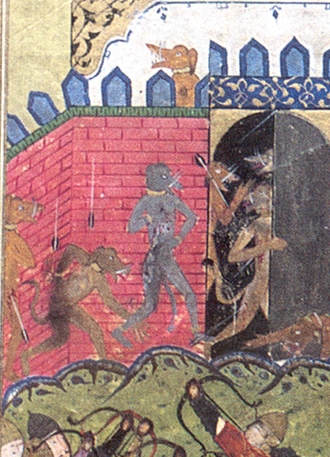



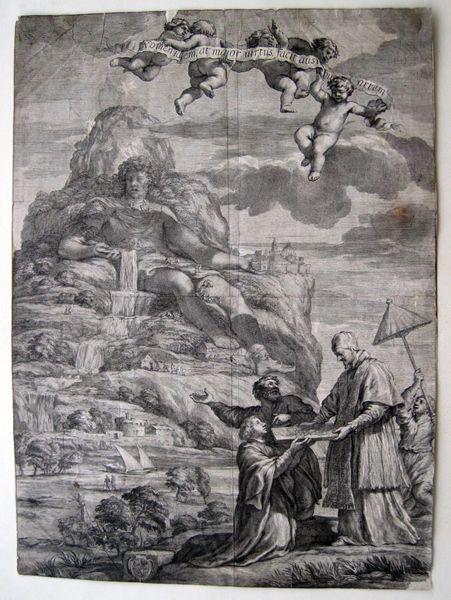


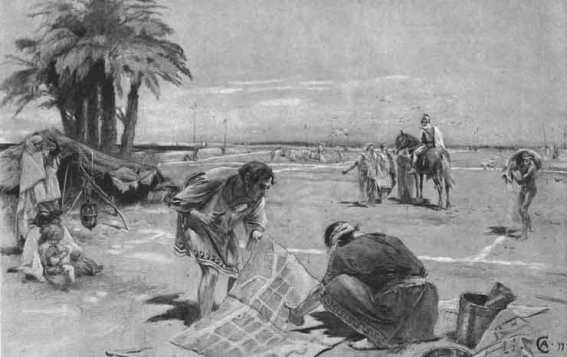
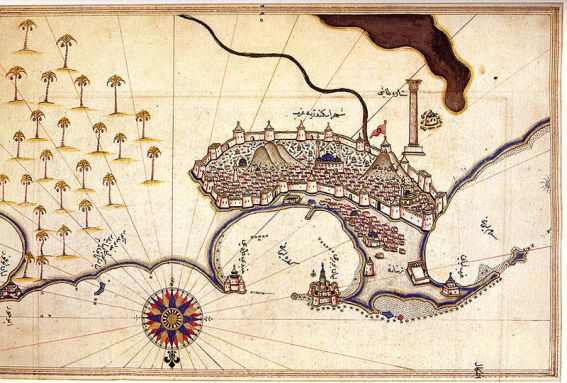
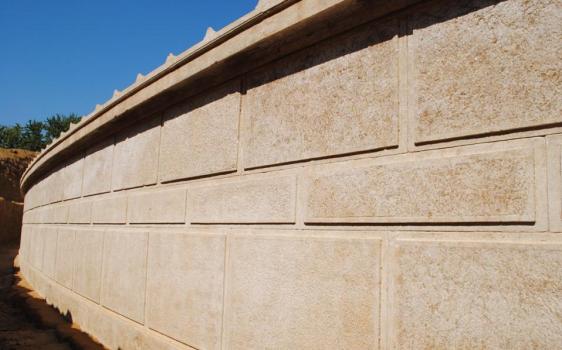
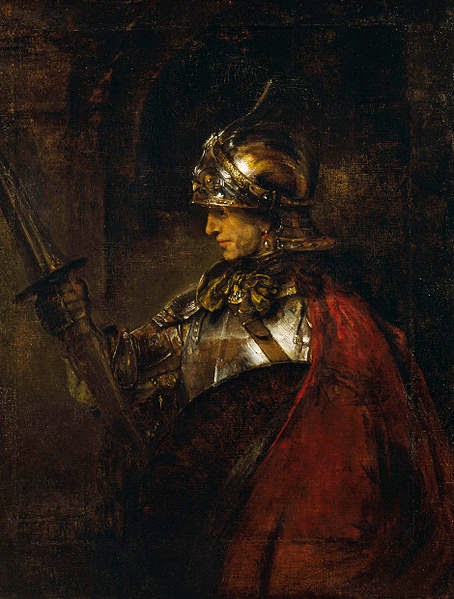
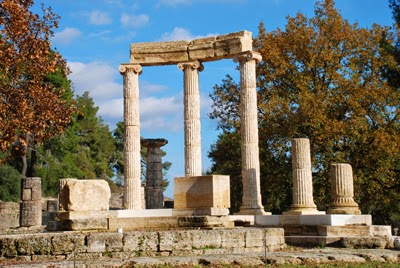


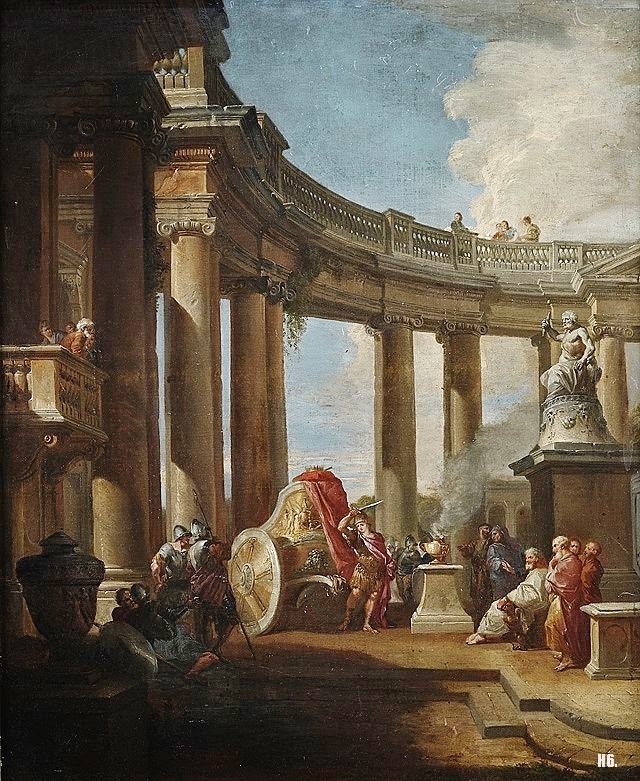






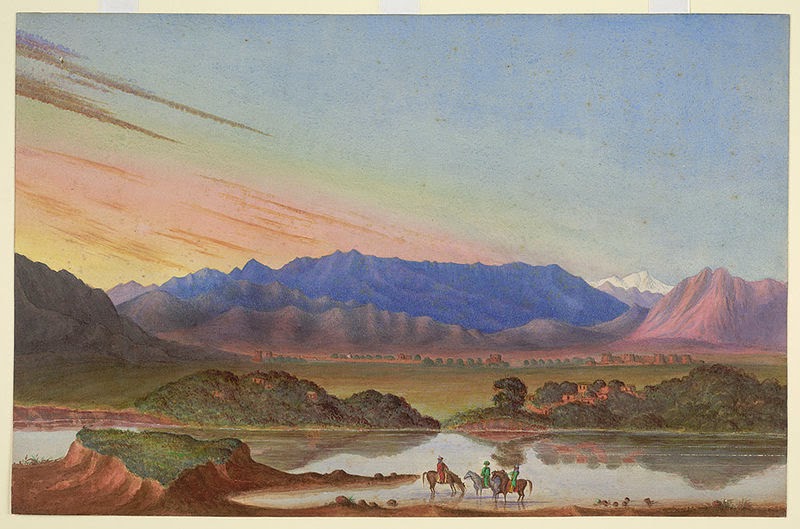

 RIAMBOS ALEXANDRE (THE ENTRANCE TO VAVYLONA) Charles Le Brun 1673 MUSEUM LOUVROU
RIAMBOS ALEXANDRE (THE ENTRANCE TO VAVYLONA) Charles Le Brun 1673 MUSEUM LOUVROU









